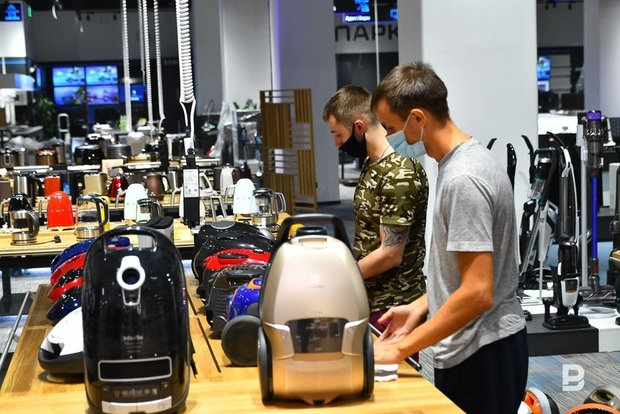Natalia Malykh: ‘The market will soon beat September lows — one shouldn’t buy yet’
An analyst of Finam FG about the panic in the Russian stock market, new risks and prospects
After the announcement of partial mobilisation, the Russian stock market lost about 20% in value, and after an address about referenda in the People’s Republics of Luhansk and Donetsk, Zaporizhzhia and Kherson oblasts, the Moscow Exchange Index fell below 1,900 points. After the new regions joined Russia, the West didn’t fail to reply with new sanctions. In an op-ed column for Realnoe Vremya, head of the Stock Analysis Department of Finam FG Natalia Malykh reflects on what new shocks the market should wait for.
In expectation of new sanctions
In the last decade of September, a series of news shook the Russian stock market. The news brought it almost 20% down, at some point the fall reached 24%. Referenda in four regions of Southeast Ukraine and partial mobilisation were announced, which means a new turn of escalation in the conflict. In corporate life, the government said it planned to increase the debt burden on feedstock exporters. And now the Moscow Exchange Index is below the psychological threshold of 2,000 points.

A rise in taxes will limit the market recovery
A rise in taxes for feedstock exporters and partial mobilisation can have a big impact on the market. The government’s plans to finance public costs to fund the budget deficit at the expense of feedstock exporters are quite clear. The authorities hope to collect about 1,4 trillion rubles from mineral users next year and a total of 3 trillion rubles by 2025.
The details aren’t yet known, but this can affect suppliers of coal, oil and gas companies as well as fertiliser producers. The high price of these goods amid the food and energy crisis provide a chance of earning an excess profit and even if the tax burden goes up, the companies shouldn’t be unprofitable, only profit will decrease. For companies’ shareholders, in turn, this is a negative card — the higher taxes, the lower its capitalisation and less space for payment. Considering that our stock market has a serious leaning towards raw materials, a hike in taxes will restrict the recovery.
The partial mobilisation provoked a sudden sale at some point because of the need for liquidity to transfer it to less riskier options or even for emigration. Later, this event will influence the consumer market — people will likely decrease selected consumption and save more.
One’s risks should be reconsidered
How will the market move further? Given the great uncertainty and escalation of the conflict, now there aren’t drivers for a turn and some significant rally. Perhaps, the market will soon beat September lows, and this is why one shouldn’t buy yet, even if you really want to. One’s risks should be reconsidered, and if the shares account for a lion’s share in the portfolio, there is sense in decreasing the risk level and putting some part to a friendly currency, gold bullions or digital gold or state bonds.
A V-turn now looks a fantastic scenario — something very good must happen for this. There is a great chance of seeing a flat around the lows, it is my basic scenario. Therefore mid-term investments or even short-term speculations can be more meaningful.

Of course, one can make gradual long-term investments, but it is necessary to understand that one will have to wait for a very long time, and money in fact will be frozen for a long period. Precisely Russia’s military success will define the result of investments, while the economy will adapt with time — we have resources for this and supporters in developing countries that want to trade with Russia. In case of success in the world stage, foreign currency from friendly countries, mainly from Asian and Near Eastern stocks, can be expected in the Russian capital market. The risks are high for them now, but in the future when the conflict is over, direct and portfolio investments in our market can be interesting in an attempt to diversify one’s investments in non-Western assets because of a risk of sanctions like it happened to Russian reserves.
Reference
The author’s opinion does not necessarily coincide with the position of Realnoe Vremya’s editorial board.